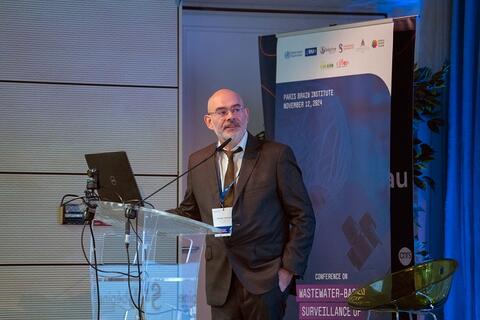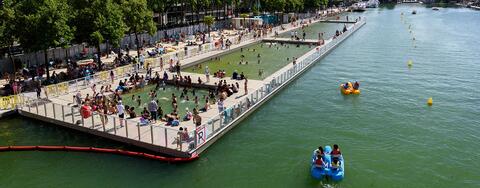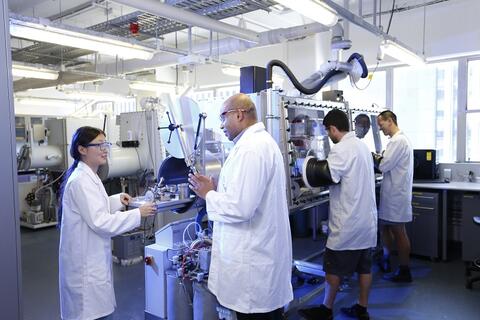
“The public health issues we’re tackling are international: pathogens know no borders.”
From epidemiology to ethics, last week’s international conference “Wastewater-based surveillance of infectious diseases” showcased multidisciplinarity in action.
On November 12, over 100 international experts, from researchers to legal professionals and political players, came together in Paris to participate in the conference “Wastewater-based surveillance (WWS) of infectious diseases: towards a global perspective.” Over 900 people also participated via Zoom and YouTube.
Hosted by Sorbonne University at the Institut du Cerveau, the event was organised by the university in collaboration with the 4EU+ Alliance, Obepine+, Paris-Assas University and the Geneva Health Forum. It also saw organization and participation from the World Health Organisation, with Chikwe Ihekweazu, epidemiologist and Assistant Director-General for the Division of Health Emergency Intelligence and Surveillance Systems, presenting a keynote speech.
The conference was the fruit of SWEALTH, a 4EU+ Alliance project led by Sorbonne University's Professor Vincent Marechal — the first strategic research project common to all 4EU+ universities and funded by the members themselves.
We asked Maréchal a few questions about the conference—and the work it encapsulated—to learn more about wastewater-based epidemiology (WBE), international cooperation, and multidisciplinarity:
Why is international collaboration in WBE and WWS important?
The public health issues we're tackling are international: pathogens know no borders, and controlling epidemics necessarily involves international surveillance networks and information sharing. The WHO and Europe will play a major role in coordinating these networks.
In addition, many research teams are working to develop the same tools. Coordination of research projects on an international scale is essential to better organize efforts, share research products more rapidly and transfer them to the surveillance networks that will be responsible for their application.
What do you hope this conference will result in?
This conference was important for facilitating exchanges between the research communities and the political players who will use, or not, the products of research to better prevent infectious risks. It was also necessary to bring together communities that too seldom engage in dialogue, such as researchers from scientific disciplines and colleagues from the humanities and social sciences, whose contribution will be essential in addressing questions of law and ethics in particular.
It was also essential to take a step aside to assess, together, the most relevant lines of research and the strategies that need to be prioritized if we are to rapidly integrate wastewater epidemiology into other pandemic preparedness schemes. Last but not least, we have seen a number of contacts made during the conference, which we hope will contribute to the development of transnational, multi-disciplinary collaborations on the subject.
The word “multidisciplinary” has come up a lot during the conference. What makes it so essential?
Creating an infection surveillance system through the analysis of wastewater—on a global scale—is inherently based on technical and scientific knowledge, but also on aspects that relate to ethics, law and economics in particular. These approaches require developing communication vectors towards political decision-makers, but also towards the population. In my opinion, multidisciplinarity is essential to the epidemiology of wastewater, especially if it fits into the logic of “one health” strategies which associate human health with that of animals or the environment.
Watch the conference recording.
By Alyssa Perrott



